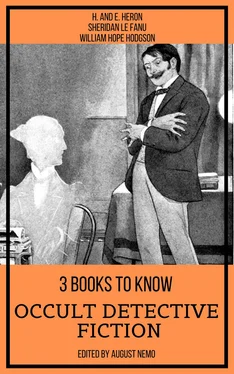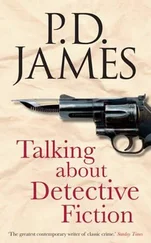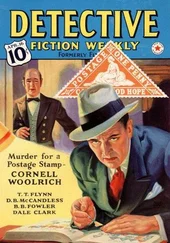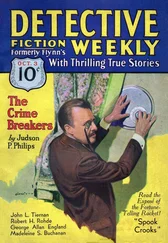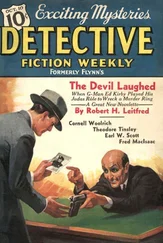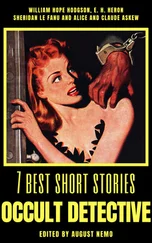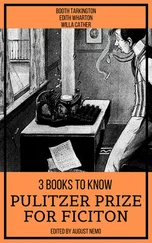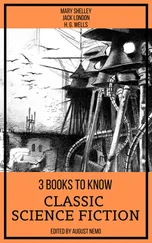The Judge’s House
––––––––

Thirty years ago, an elderly man, to whom I paid quarterly a small annuity charged on some property of mine, came on the quarter-day to receive it. He was a dry, sad, quiet man, who had known better days, and had always maintained an unexceptionable character. No better authority could be imagined for a ghost story.
He told me one, though with a manifest reluctance; he was drawn into the narration by his choosing to explain what I should not have remarked, that he had called two days earlier than that week after the strict day of payment, which he had usually allowed to elapse. His reason was a sudden determination to change his lodgings, and the consequent necessity of paying his rent a little before it was due.
He lodged in a dark street in Westminster, in a spacious old house, very warm, being wainscoted from top to bottom, and furnished with no undue abundance of windows, and those fitted with thick sashes and small panes.
This house was, as the bills upon the windows testified, offered to be sold or let. But no one seemed to care to look at it.
A thin matron, in rusty black silk, very taciturn, with large, steady, alarmed eyes, that seemed to look in your face, to read what you might have seen in the dark rooms and passages through which you had passed, was in charge of it, with a solitary “maid-of-all-work” under her command. My poor friend had taken lodgings in this house, on account of their extraordinary cheapness. He had occupied them for nearly a year without the slightest disturbance, and was the only tenant, under rent, in the house. He had two rooms; a sitting-room and a bed-room with a closet opening from it, in which he kept his books and papers locked up. He had gone to his bed, having also locked the outer door. Unable to sleep, he had lighted a candle, and after having read for a time, had laid the book beside him. He heard the old clock at the stairhead strike one; and very shortly after, to his alarm, he saw the closet-door, which he thought he had locked, open stealthily, and a slight dark man, particularly sinister, and somewhere about fifty, dressed in mourning of a very antique fashion, such a suit as we see in Hogarth, entered the room on tip-toe. He was followed by an elder man, stout, and blotched with scurvy, and whose features, fixed as a corpse’s, were stamped with dreadful force with a character of sensuality and villany.
This old man wore a flowered silk dressing-gown and ruffles, and he remarked a gold ring on his finger, and on his head a cap of velvet, such as, in the days of perukes, gentlemen wore in undress.
This direful old man carried in his ringed and ruffled hand a coil of rope; and these two figures crossed the floor diagonally, passing the foot of his bed, from the closet door at the farther end of the room, at the left, near the window, to the door opening upon the lobby, close to the bed’s head, at his right.
He did not attempt to describe his sensations as these figures passed so near him. He merely said, that so far from sleeping in that room again, no consideration the world could offer would induce him so much as to enter it again alone, even in the daylight. He found both doors, that of the closet, and that of the room opening upon the lobby, in the morning fast locked as he had left them before going to bed.
[Illustration: These two figures crossed the floor diagonally, passing the foot of the bed.]
In answer to a question of mine, he said that neither appeared the least conscious of his presence. They did not seem to glide, but walked as living men do, but without any sound, and he felt a vibration on the floor as they crossed it. He so obviously suffered from speaking about the apparitions, that I asked him no more questions.
There were in his description, however, certain coincidences so very singular, as to induce me, by that very post, to write to a friend much my senior, then living in a remote part of England, for the information which I knew he could give me. He had himself more than once pointed out that old house to my attention, and told me, though very briefly, the strange story which I now asked him to give me in greater detail.
His answer satisfied me; and the following pages convey its substance.
Your letter (he wrote) tells me you desire some particulars about the closing years of the life of Mr. Justice Harbottle, one of the judges of the Court of Common Pleas. You refer, of course, to the extraordinary occurrences that made that period of his life long after a theme for “winter tales” and metaphysical speculation. I happen to know perhaps more than any other man living of those mysterious particulars.
The old family mansion, when I revisited London, more than thirty years ago, I examined for the last time. During the years that have passed since then, I hear that improvement, with its preliminary demolitions, has been doing wonders for the quarter of Westminster in which it stood. If I were quite certain that the house had been taken down, I should have no difficulty about naming the street in which it stood. As what I have to tell, however, is not likely to improve its letting value, and as I should not care to get into trouble, I prefer being silent on that particular point.
How old the house was, I can’t tell. People said it was built by Roger Harbottle, a Turkey merchant, in the reign of King James I. I am not a good opinion upon such questions; but having been in it, though in its forlorn and deserted state, I can tell you in a general way what it was like. It was built of dark-red brick, and the door and windows were faced with stone that had turned yellow by time. It receded some feet from the line of the other houses in the street; and it had a florid and fanciful rail of iron about the broad steps that invited your ascent to the hall-door, in which were fixed, under a file of lamps among scrolls and twisted leaves, two immense “extinguishers,” like the conical caps of fairies, into which, in old times, the footmen used to thrust their flambeaux when their chairs or coaches had set down their great people, in the hall or at the steps, as the case might be. That hall is panelled up to the ceiling, and has a large fire-place. Two or three stately old rooms open from it at each side. The windows of these are tall, with many small panes. Passing through the arch at the back of the hall, you come upon the wide and heavy well-staircase. There is a back staircase also. The mansion is large, and has not as much light, by any means, in proportion to its extent, as modern houses enjoy. When I saw it, it had long been untenanted, and had the gloomy reputation beside of a haunted house. Cobwebs floated from the ceilings or spanned the corners of the cornices, and dust lay thick over everything. The windows were stained with the dust and rain of fifty years, and darkness had thus grown darker.
When I made it my first visit, it was in company with my father, when I was still a boy, in the year 1808. I was about twelve years old, and my imagination impressible, as it always is at that age. I looked about me with great awe. I was here in the very centre and scene of those occurrences which I had heard recounted at the fireside at home, with so delightful a horror.
My father was an old bachelor of nearly sixty when he married. He had, when a child, seen Judge Harbottle on the bench in his robes and wig a dozen times at least before his death, which took place in 1748, and his appearance made a powerful and unpleasant impression, not only on his imagination, but upon his nerves.
The Judge was at that time a man of some sixty-seven years. He had a great mulberry-coloured face, a big, carbuncled nose, fierce eyes, and a grim and brutal mouth. My father, who was young at the time, thought it the most formidable face he had ever seen; for there were evidences of intellectual power in the formation and lines of the forehead. His voice was loud and harsh, and gave effect to the sarcasm which was his habitual weapon on the bench.
Читать дальше
